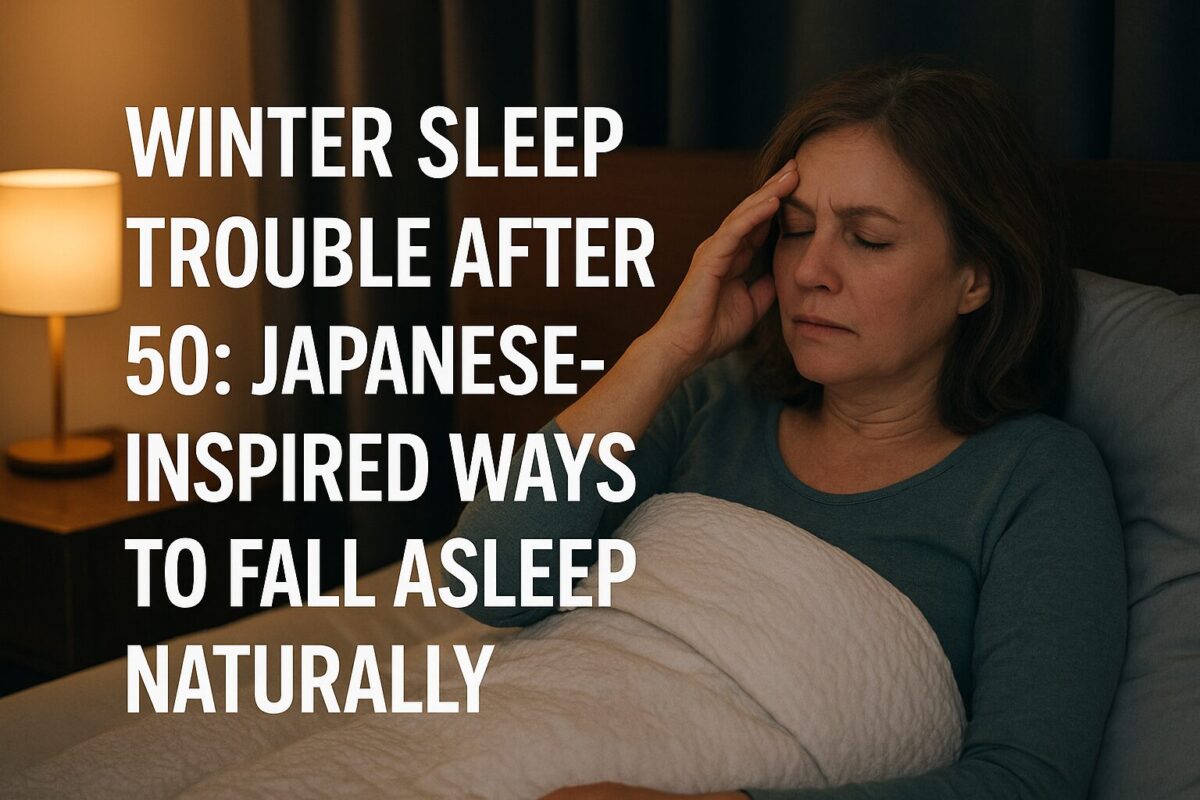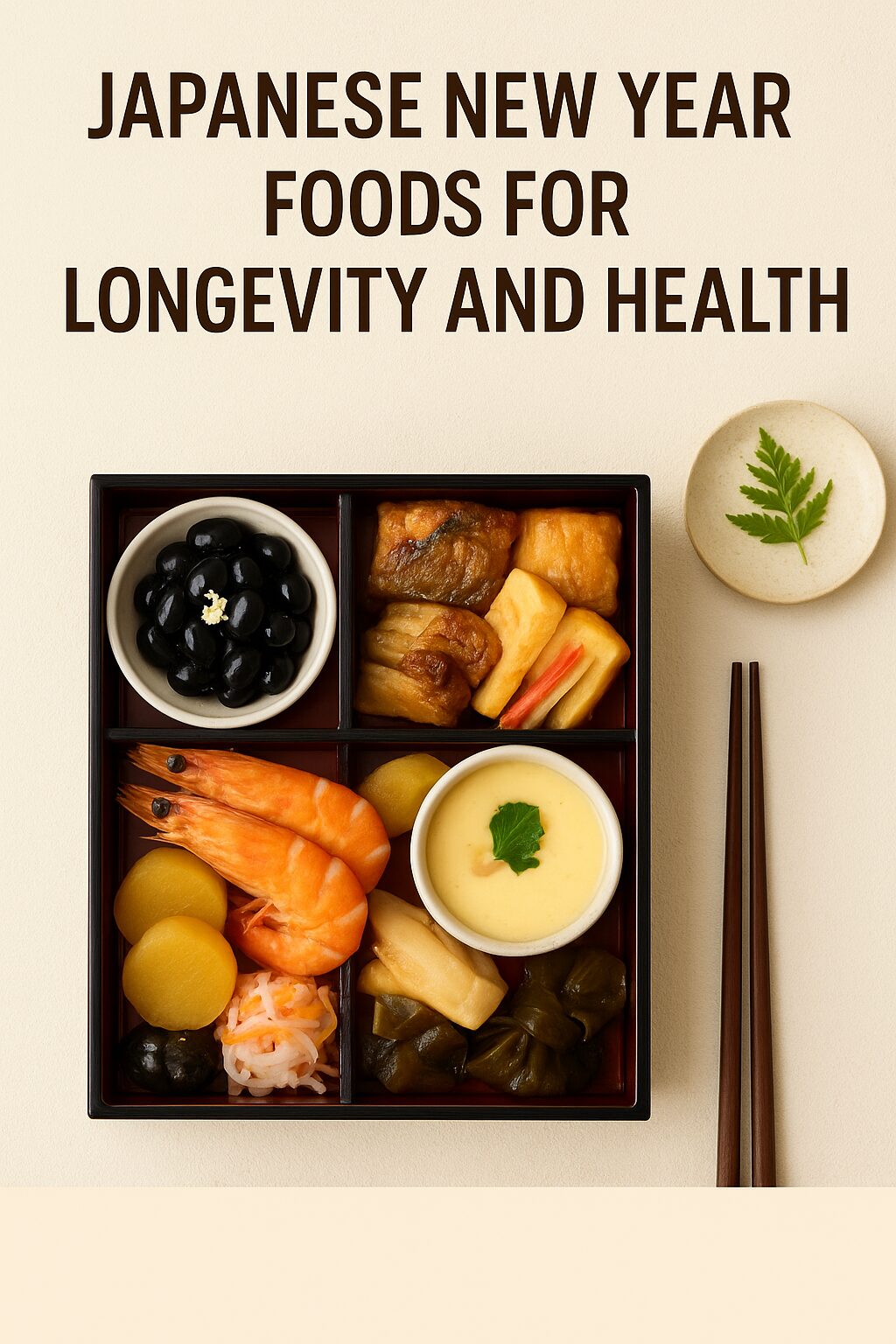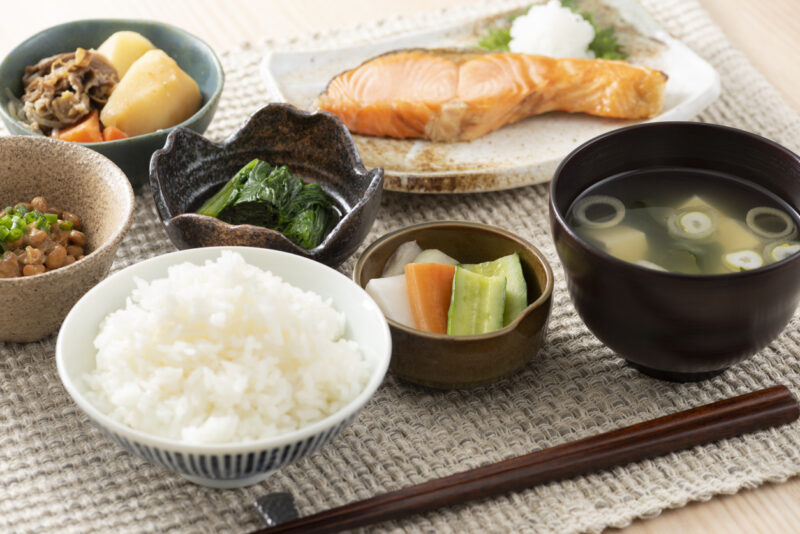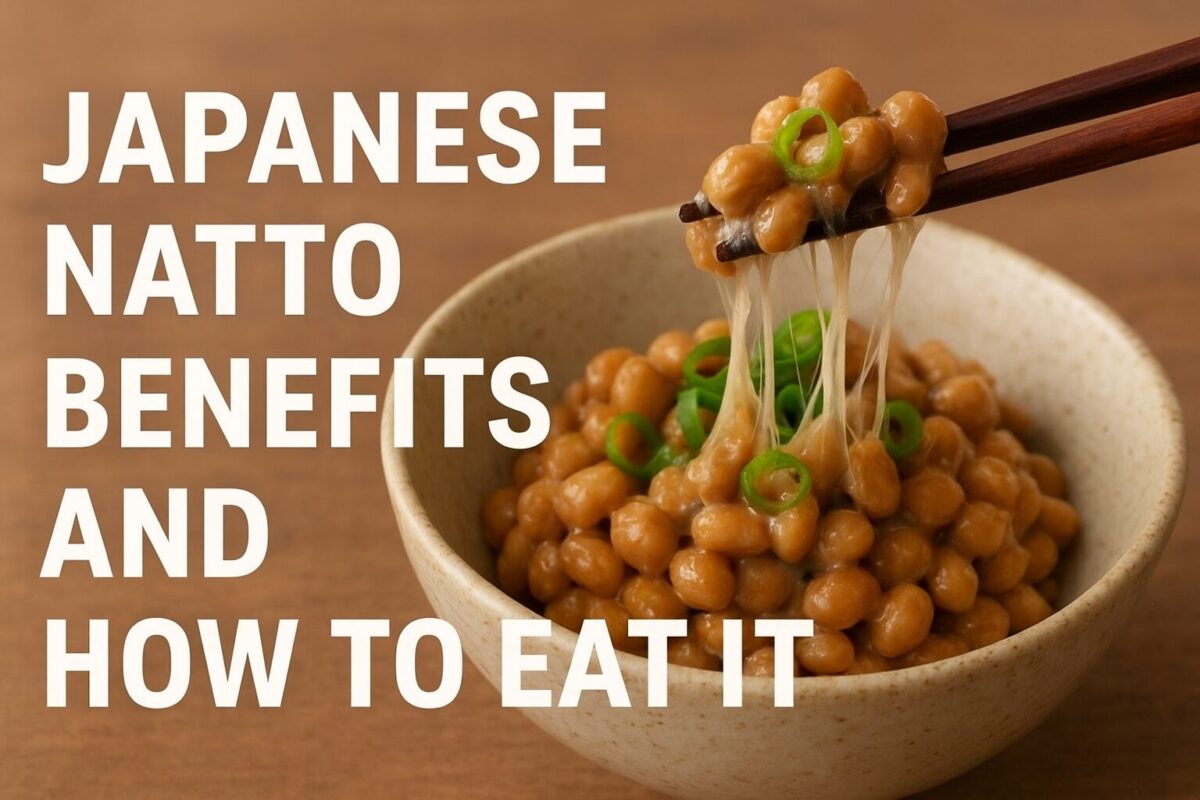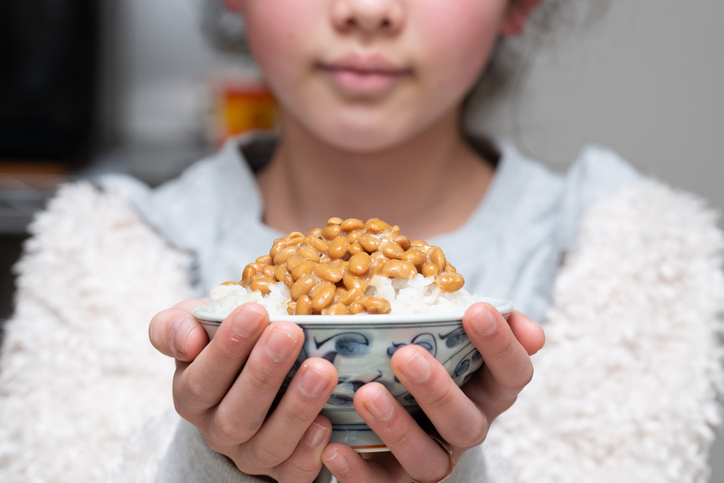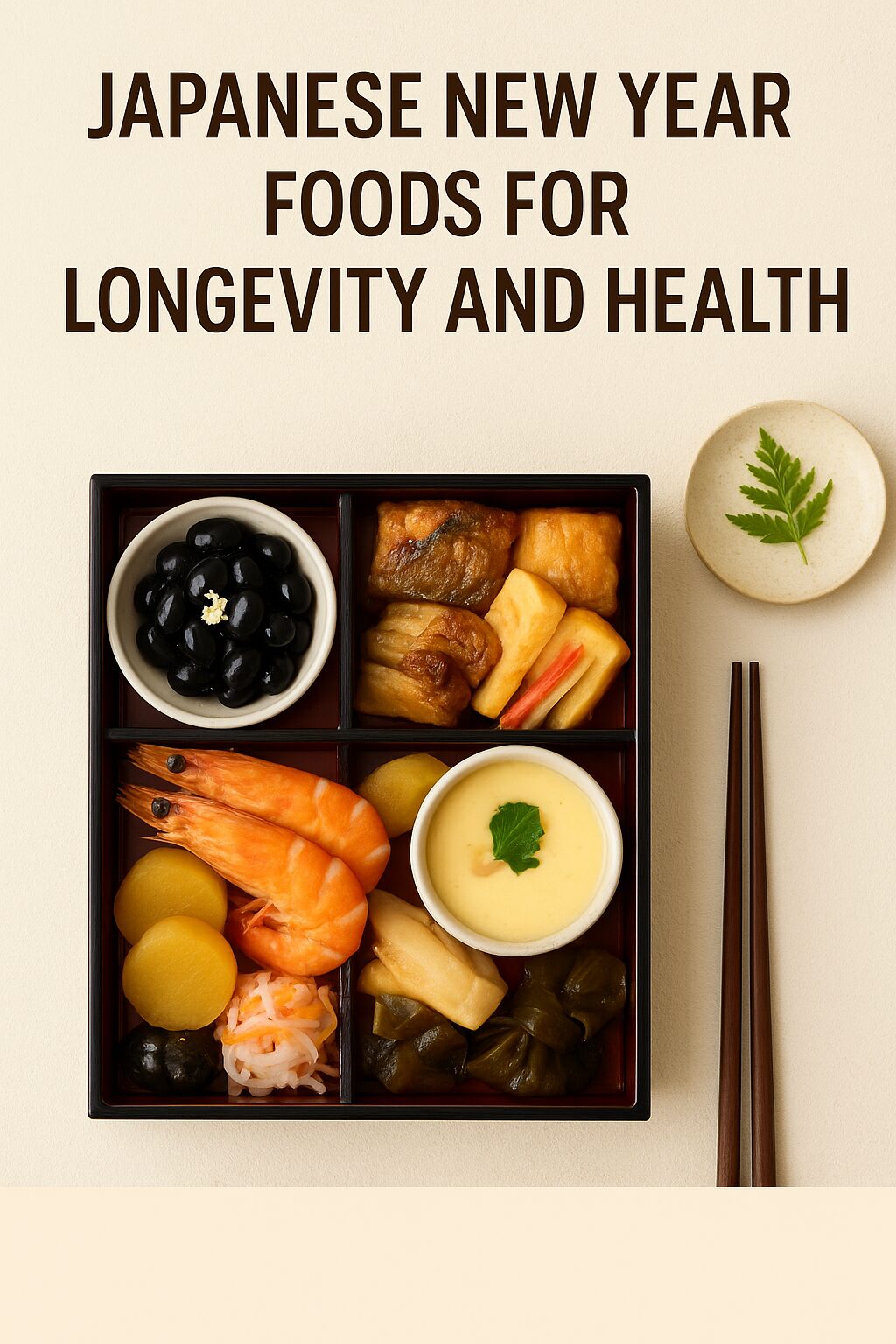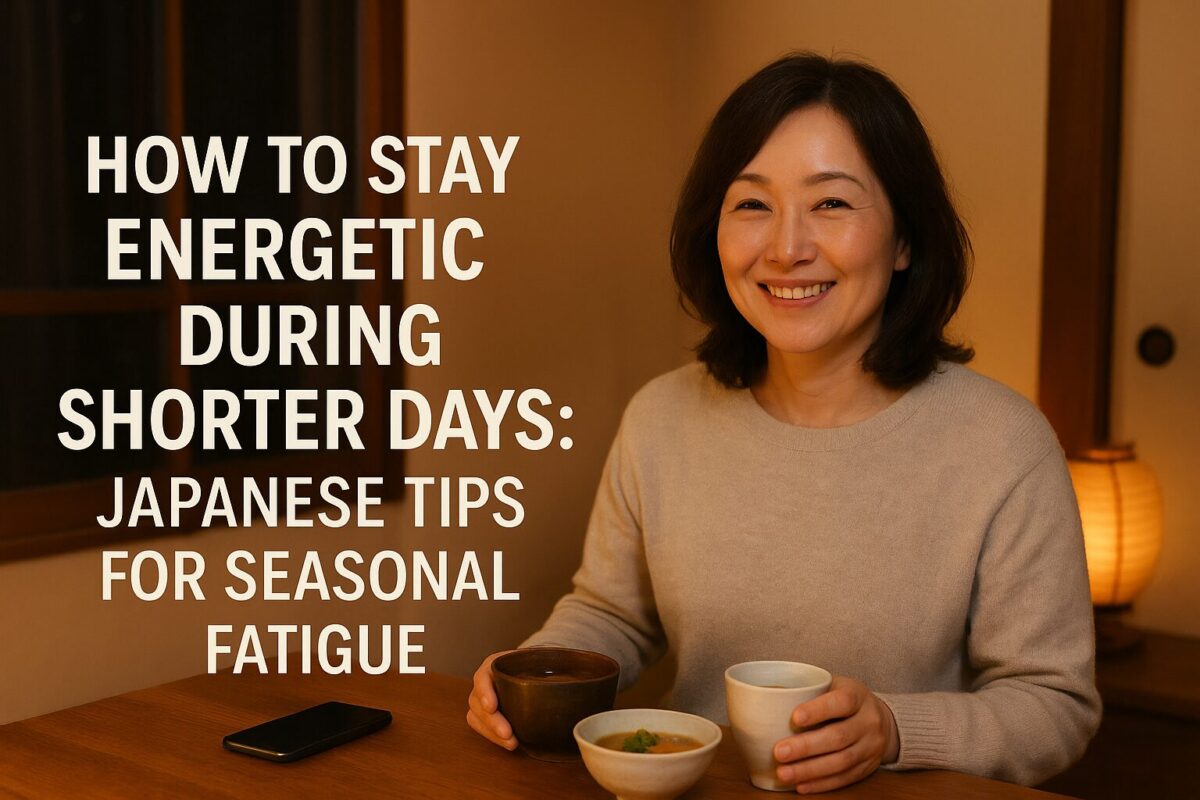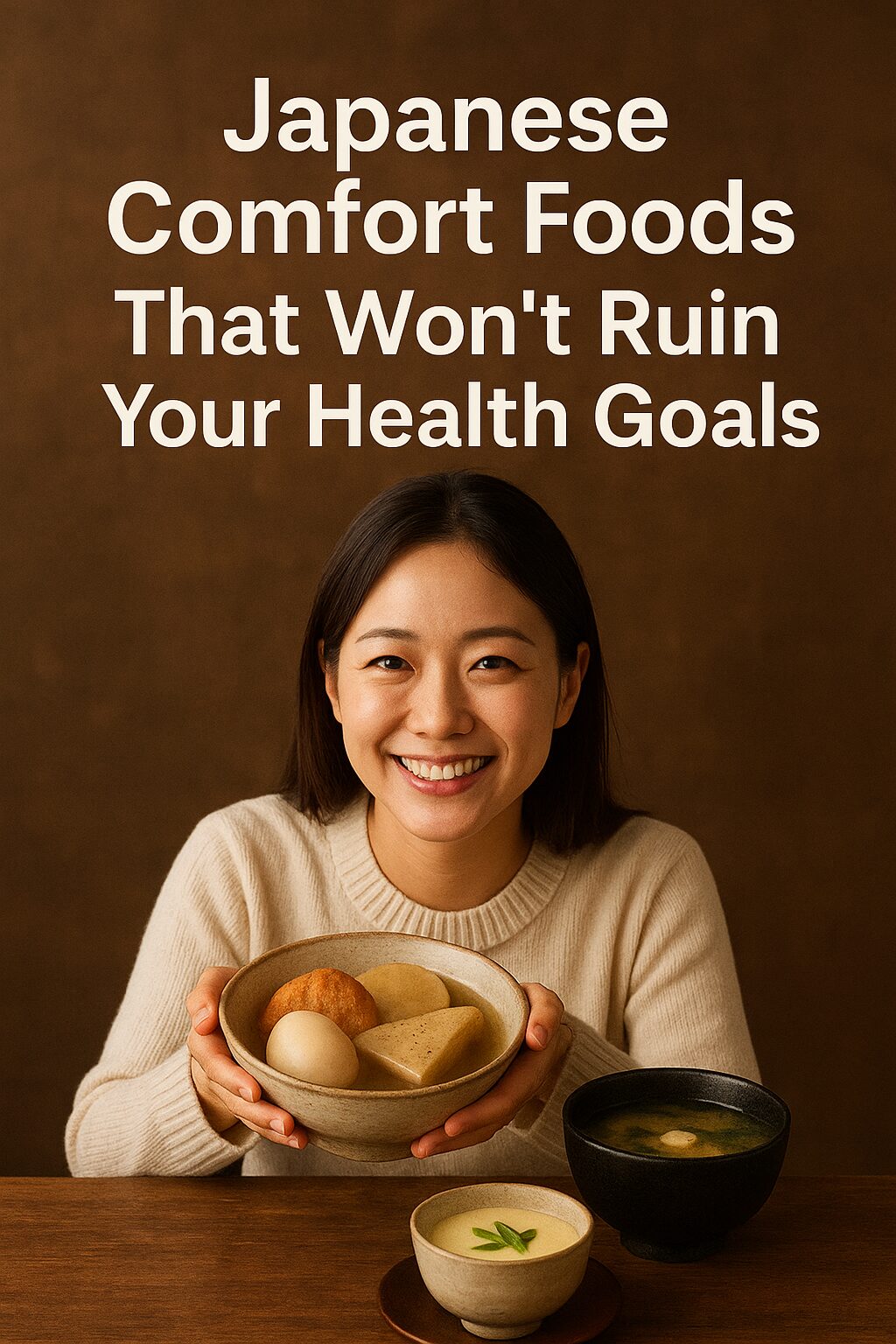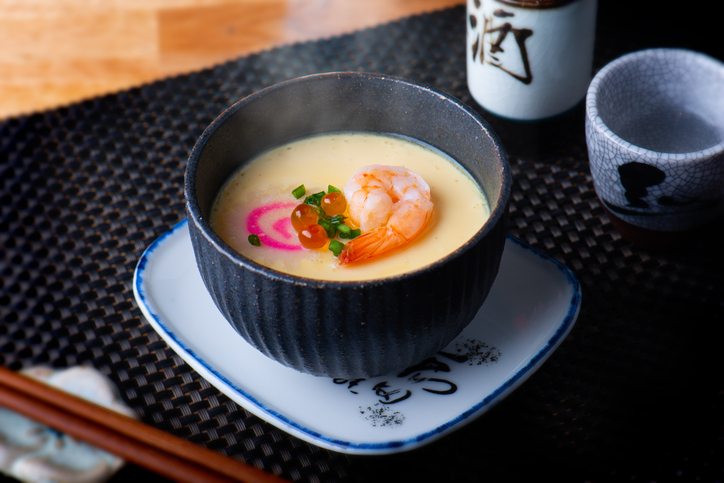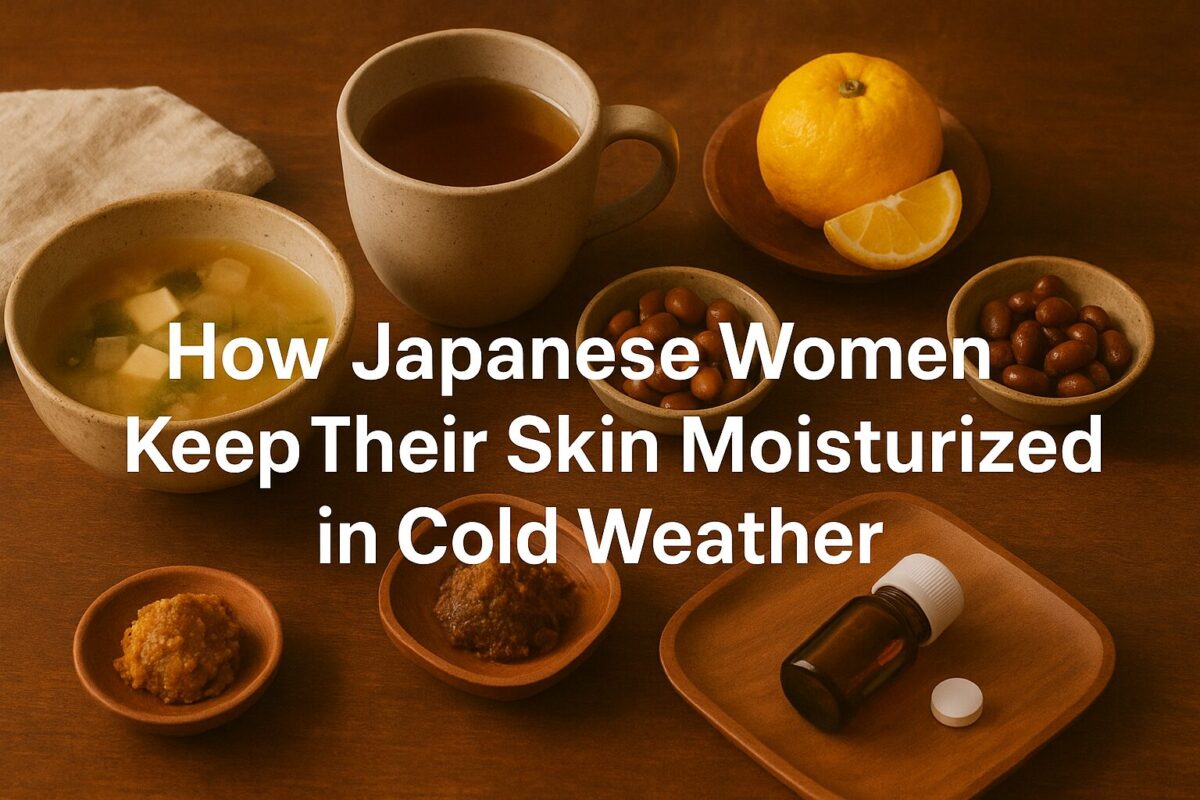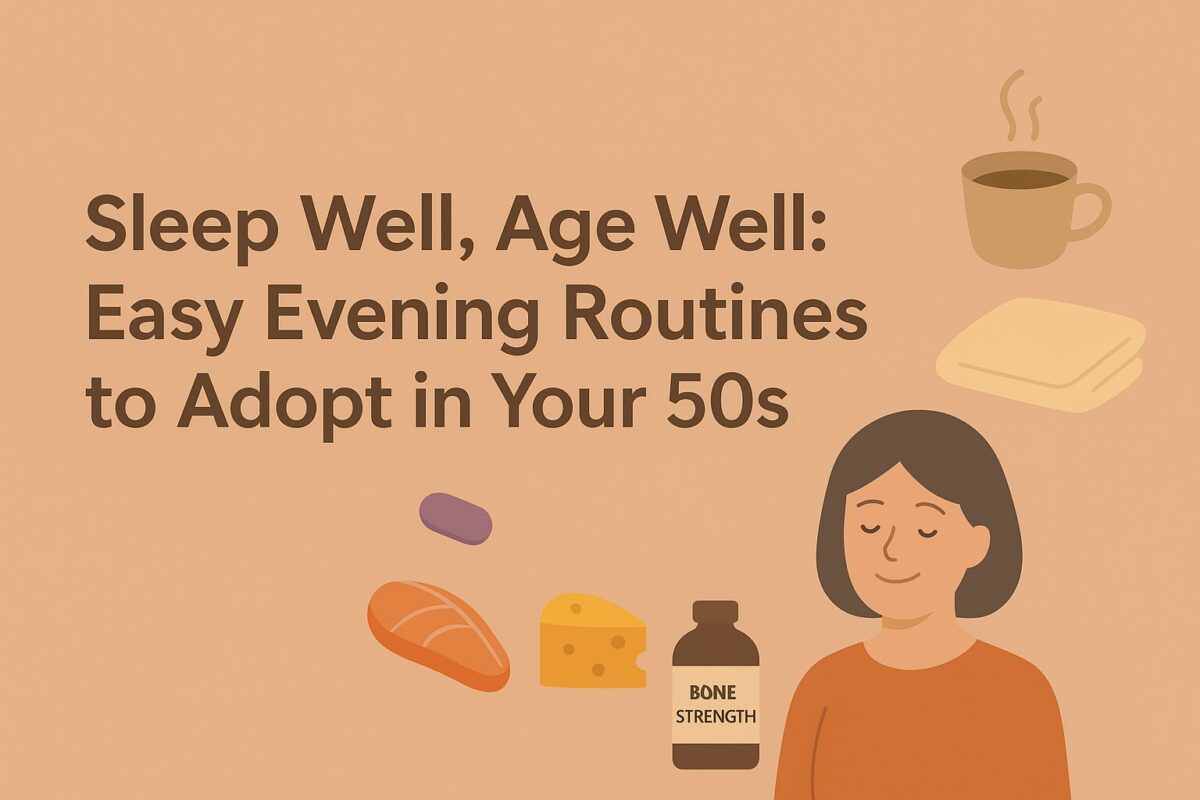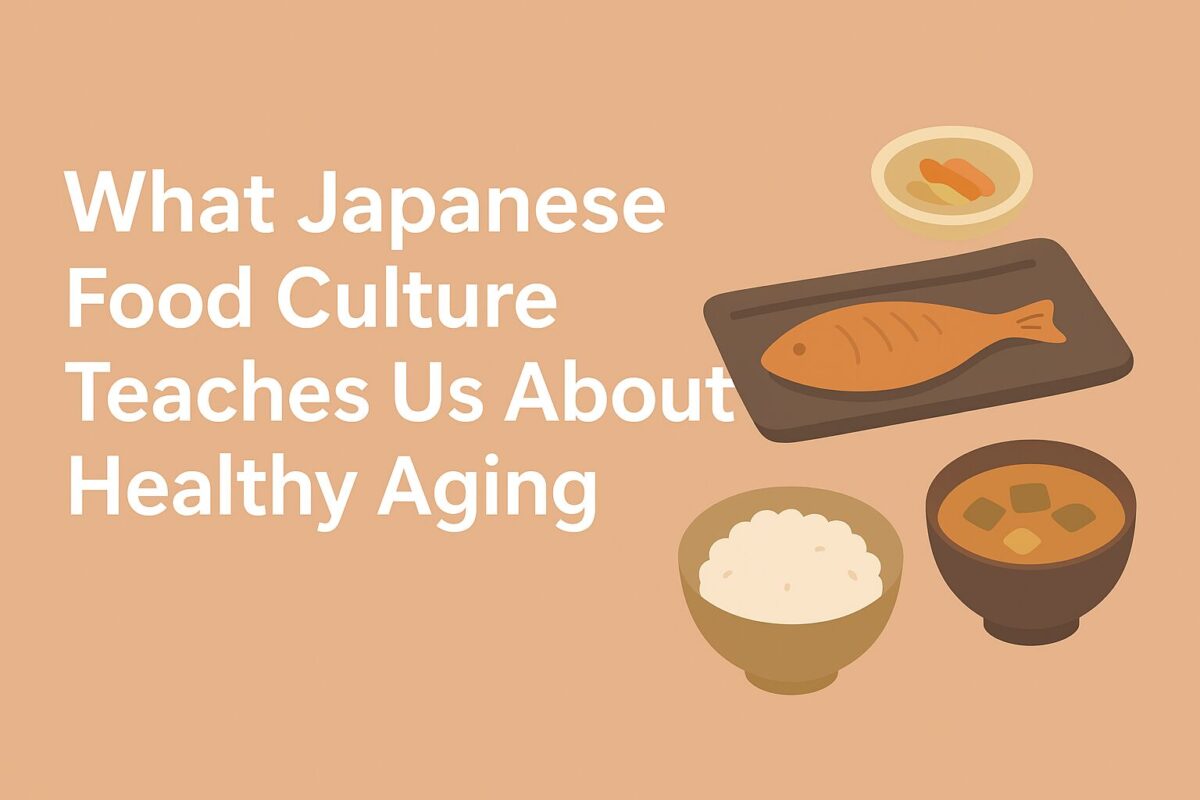Why Immunity Becomes More Vulnerable After 50—Especially in Winter
As winter approaches, many women over 50 notice they catch colds more easily, recover more slowly, or feel run-down for weeks at a time. This is not a coincidence.
After midlife, the immune system naturally becomes less responsive due to:
-
Hormonal decline after menopause
-
Reduced gut diversity
-
Chronic low-grade inflammation
-
Increased stress and poorer sleep in winter
Cold weather, shorter daylight hours, and less physical activity further weaken immune defenses. In Japan, winter health has long been supported not by extreme supplements, but by daily foods that gently strengthen immunity from within.
The Japanese View of Immunity: It Starts in the Gut
In Japanese nutrition philosophy, immunity is closely tied to digestion. A healthy gut supports:
-
Balanced immune response
-
Lower inflammation
-
Better nutrient absorption
This is why traditional Japanese winter meals emphasize fermented foods, warm dishes, and seasonal ingredients.
Modern research supports this idea: over 70% of immune cells are associated with the gut.
Fermented Foods: The Foundation of Japanese Immune Health
Miso: A Daily Immune Ritual
Miso is a fermented soybean paste rich in:
-
Probiotics
-
Antioxidants
-
Essential minerals
In winter, miso soup is often eaten once or even twice daily in Japan. Warm miso soup:
-
Supports gut bacteria
-
Enhances nutrient absorption
-
Helps the body resist seasonal illness
For women over 50, miso also provides fermented soy compounds that support hormonal balance—an important factor in immune resilience.
Natto: Powerful but Optional
Natto is one of the most probiotic-rich foods in the Japanese diet. It contains:
-
Beneficial bacteria
-
Vitamin K2
-
Enzymes that support circulation
While its strong flavor may not appeal to everyone, even small amounts can positively impact gut health.
For those who do not eat natto regularly, fermented soy–based supplements inspired by Japanese nutrition, such as Juveriente Effisoy, offer a practical alternative.
Antioxidant-Rich Japanese Winter Foods
Antioxidants protect immune cells from damage caused by stress, aging, and inflammation. Japanese winter foods are naturally rich in these compounds.
Citrus Fruits: Yuzu and Mandarin Oranges
Japanese winter citrus fruits are known for their immune-supportive properties.
They contain:
-
Vitamin C
-
Flavonoids like hesperidin
-
Beta-cryptoxanthin
Beta-cryptoxanthin, found in Japanese mandarin oranges, has been studied for its role in:
-
Reducing inflammation
-
Supporting immune response
-
Promoting bone health in older adults
This nutrient is also featured in Juveriente Bone Strength Complex, making it especially relevant during winter when both immunity and bone health need extra support.
Green Tea: Gentle Daily Protection
Green tea provides catechins, powerful antioxidants that:
-
Support immune cell activity
-
Reduce oxidative stress
-
Help protect against seasonal infections
In winter, many Japanese people switch to hōjicha, a roasted green tea that is:
-
Low in caffeine
-
Warming
-
Gentle on digestion
Seaweed: Mineral Support for Immunity
Seaweeds such as wakame, kombu, and nori are rich in:
-
Iodine
-
Iron
-
Magnesium
-
Antioxidant compounds
These minerals support immune signaling and thyroid health, which indirectly affects energy and resistance to illness.
Adding seaweed to soups or salads is a simple way to strengthen winter nutrition.
Warm Foods Reduce Immune Stress
Cold foods force the body to expend energy warming itself, which can stress the immune system.
Japanese winter meals emphasize:
-
Soups and stews
-
Simmered vegetables (nimono)
-
Light but nourishing proteins
Warm foods:
-
Improve circulation
-
Reduce digestive strain
-
Help immune cells function efficiently
This is especially important for women over 50, whose metabolism naturally slows.
Gut Health, Hormones, and Immunity
Hormonal changes after menopause influence immune response more than many realize.
Lower estrogen levels can:
-
Increase inflammation
-
Reduce gut diversity
-
Weaken immune signaling
Supporting the body’s own hormone regulation is therefore essential for immune resilience.
Traditional Japanese diets—rich in fermented soy—isoflavones—help the body adapt naturally. Juveriente Effisoy uses aglycone isoflavones, the easily absorbed form found in fermented Japanese foods, to support this process gently.
Rather than stimulating immunity aggressively, this approach helps the body restore balance, which is key for long-term health.
Japanese Winter Habits That Protect Immunity
Food alone is not the full picture. Japanese winter lifestyle habits also play a role in immune strength.
Warm Baths
Soaking in a warm bath improves circulation and reduces stress hormones that suppress immune function.
Regular Sleep Schedule
Consistent sleep supports immune memory and recovery.
Light Daily Movement
Gentle walking or stretching improves lymphatic flow and immune surveillance.
These habits work together with nutrition to form a complete winter health strategy.
A Simple Japanese-Inspired Immune Routine for Winter
Here is a realistic daily routine for women over 50:
Morning
-
Warm tea (green tea or hōjicha)
-
Light breakfast with fermented food
Midday
-
Balanced meal with vegetables and protein
-
Short walk for circulation
Evening
-
Warm soup or stew
-
Bath or foot soak
-
Early, consistent bedtime
Consistency matters more than intensity.
Strengthening Immunity Without Overloading the Body
Many immune supplements aim to “boost” immunity aggressively, which may not be ideal for aging bodies.
Japanese wisdom focuses on:
-
Supporting gut health
-
Reducing inflammation
-
Maintaining hormonal balance
This approach strengthens immunity naturally, without overstimulation.
Final Thoughts
Winter does not have to mean frequent illness or constant fatigue.
By embracing Japanese winter foods rich in probiotics and antioxidants, and supporting the body gently with warmth, fermentation, and balance, women over 50 can maintain strong immunity throughout the cold season.
Small daily choices—miso soup, warm tea, fermented nutrition—add up to powerful protection over time.
Juveriente Effisoy: A Natural Solution for Hormonal Balance and Energy Restoration
Juveriente®’s Effisoy® offers a natural solution to combat age-related fatigue in summer by supporting hormonal balance. Launched in 2016, Effisoy® is based on fermented soybean germ extract, a traditional Japanese ingredient known for its potential to ease menopause symptoms and improve overall vitality.
Effisoy® works by boosting the body’s natural synthesis of DHEA, a hormone precursor crucial for maintaining balanced hormone levels. As we age, the body’s ability to produce DHEA declines, contributing to symptoms of fatigue and decreased energy. Effisoy® helps restore this balance by enhancing the body’s own hormone production processes. It supports hormonal balance safely, without introducing external hormones, allowing your body to regulate its hormone composition naturally.
This balance not only aids in reducing age-related fatigue but also promotes healthier skin and overall well-being. While Effisoy® benefits both men and women, it has become especially popular among women experiencing menopause, helping to alleviate symptoms like fatigue, mood swings, and skin aging.
By addressing the hormonal changes associated with aging, Juveriente®’s Effisoy® provides a natural and effective way to restore energy levels and combat age-related fatigue, helping you feel more vibrant and energized as you age.
Here are some of the real product reviews in our Amazon shop.
“Restful sleep finally!!”, “I Am Now Free of Hot Flashes!!”, “Lifesaver”











